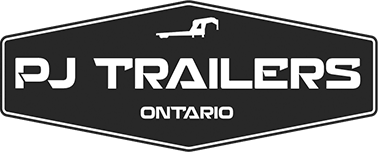Understanding Trailer Payload
You need a trailer to haul your belongings from one location to another. Seems simple enough, right? It can be, if you know what factors need to be considered to find the right trailer for the job. Finding a trailer with a big enough bed to fit everything in one trip isn’t the only thing you need to look for. Here’s everything you need to know about trailer payload to make sure you find the right trailer for you.
Breaking It Down
To find the trailer to suit your needs, you need to know what you’re going to be using it for. Is the trailer going to be used for personal or work purposes? What will you be towing? How much will everything you need to tow weigh? Once you know the weight of your haul, you can narrow down the type of trailer you’re looking for.
The next step is to determine the gross vehicle weight rating (GVWR) of the trailer. The GVWR is the absolute maximum amount of weight the trailer can handle without compromising safety. You will also need to know how much the trailer itself weighs. This is often the most overlooked factor in purchasing a trailer.
How To Calculate Payload
Now that you have your numbers, it’s time to put it all together and find out the towing capacity of the trailer, or the trailer payload. To do so, take your GVWR and subtract the trailer weight. For example, if the trailer’s GVWR is 20,000 lbs and the trailer weighs 3,500 lbs, the trailer’s payload is 16,500 lbs. This means the total weight of what you need to tow on the trailer cannot exceed this number. A good rule to keep in mind is to give yourself about a 20% leeway. This is to say, if you think the weight of your haul is going to be around 10,000 lbs, find a trailer that gives you at least an extra 2,000 lbs to work with. Giving yourself this wiggle room ensures you don’t go over your payload if anything unexpected needs to be added to your trailer. Also take into consideration any accessories on your trailer- if you add any attachments, you must include their weight in your payload calculations.
Knowledge Is Power
Knowing your trailer’s payload capacity can save you a lot of stress and money down the line. Based on the law, you must not go over your payload capacity. If you do, the fine that comes with breaking that law can break the bank. Ultimately, it may have cost you less to purchase the next trailer up or take two trips than to risk going over your payload. It is also incredibly important to know your payload for safety reasons. Going over the towing capacity can lead to uncontrollable swaying during transportation that can cause accidents and damage to your trailer and belongings. Braking can also be heavily affected by overloaded trailers. Have you ever been driving down the highway when all of a sudden the car in front of you slams on their brakes and you have to react fast? We’ve all been there. When you’re towing a trailer behind you, your ability to brake safely depends on how much you’re pulling. If you overload your trailer, it won’t be able to stop at the same speed and you risk it swaying into traffic or causing damage to your own vehicle. It isn’t just you on the road, so be safe for everyone’s sake. Keep in mind, weight distribution can play a big factor- it isn’t just what you load into your trailer, but how you load it.
Though there may be a bit more work involved in picking out your perfect trailer than you anticipated, being prepared and knowing what you’re looking for will make all the difference in your trailer shopping experience.
